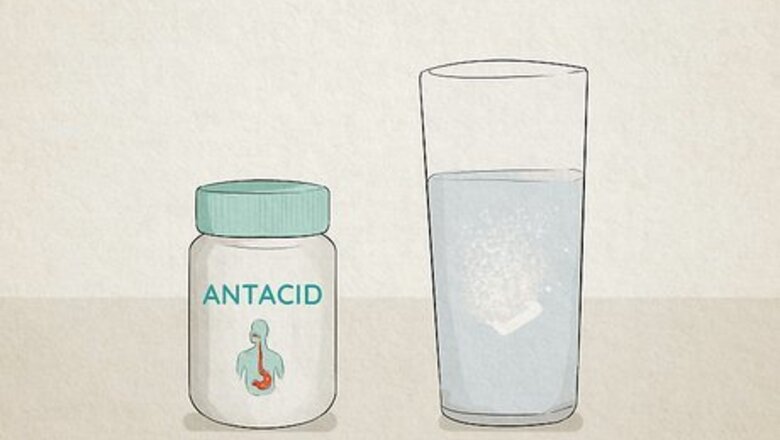
views
Try antacids.
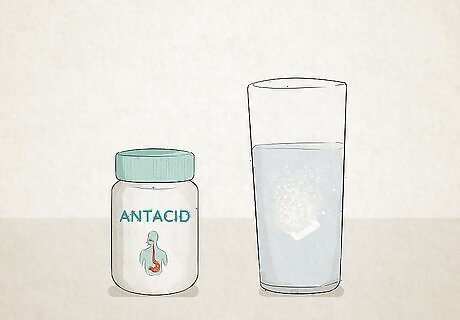
Over-the-counter antacids can help relieve pain. Brand names like Zantac and Pepcid (and their generic forms, Ranitidine and Famotidine) can help relieve your symptoms. Follow the directions on the bottle to help relieve pain and heartburn almost right away. You can usually find antacids at most drug stores.
Chew sugar-free gum after you eat.
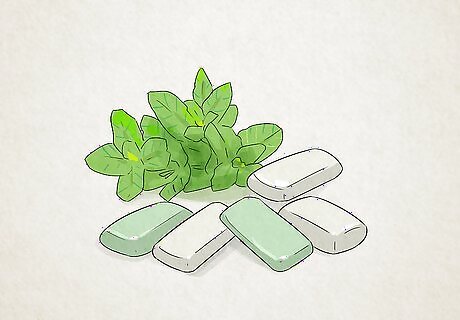
Chewing gum promotes saliva. The extra saliva can help wash away the extra acid that creates epigastric pain. Chew one piece of sugar-free gum for 30 minutes after you eat to help avoid and alleviate any pain. Stay away from peppermint-flavored gum, as that can make epigastric pain worse.
Drink baking soda mixed with water.
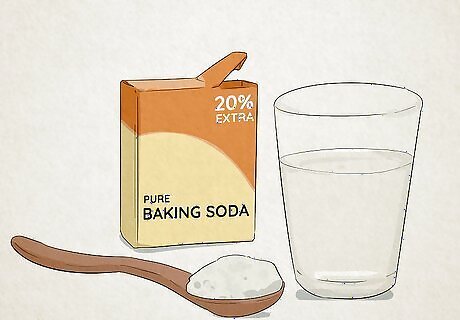
Baking soda can neutralize the acidity in your stomach. For occasional epigastric pain, try drinking ½ teaspoon (2.8 g) of baking soda in a 125 mL (0.53 c) of water. Don’t use the remedy too often, though, because the high salt content can cause bloating and nausea. If you’re on medication, talk to your doctor before drinking baking soda and water. Baking soda can disrupt the absorption rates of some medications. If you’re pregnant, stay away from this method. Baking soda can cause fluid buildup, which can be uncomfortable.
Drink aloe vera syrup.
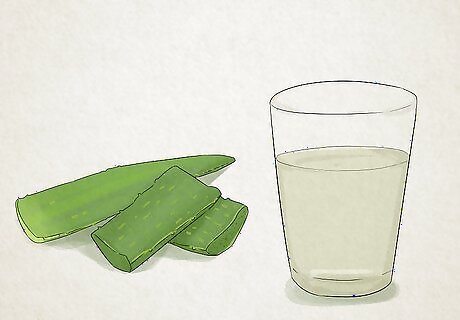
Aloe vera can soothe and alleviate epigastric pain. Try drinking 10 mL (0.042 c) of aloe vera syrup every morning before you start eating for the day. After 2 to 4 weeks, you should notice an improvement in your pain levels. If you can’t find aloe vera syrup, look for aloe vera juice instead. Use caution with aloe vera syrup, as it can act as a laxative.
Eat smaller meals.
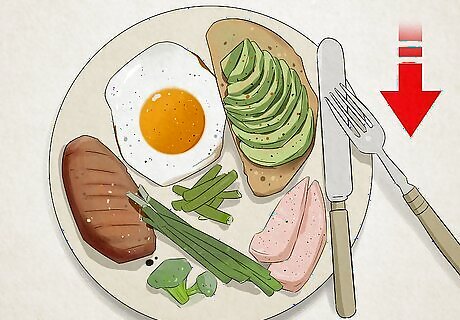
Eating a lot of food puts pressure on your stomach. Try reducing your meals by a quarter, and then a half, and see how you feel. Or, instead of eating 3 meals per day, try eating 6 small meals. When your stomach is emptier, your epigastric pain won’t be as severe. If you eat too much, your stomach can expand too far, causing acid to get into your esophagus.
Avoid alcohol, caffeine, and citrus.
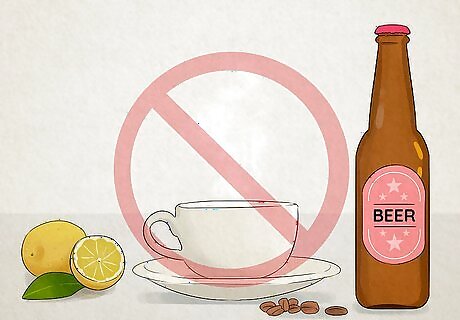
These foods can make epigastric pains worse. You should also try to avoid fatty foods or any food with chocolate in them. Peppermint can also cause epigastric pain, so watch out for mint-flavored foods. You might also notice that certain foods trigger more pain than others. It might be helpful to keep a food diary and write down everything you eat plus your pain levels that day.
Stay upright after eating.
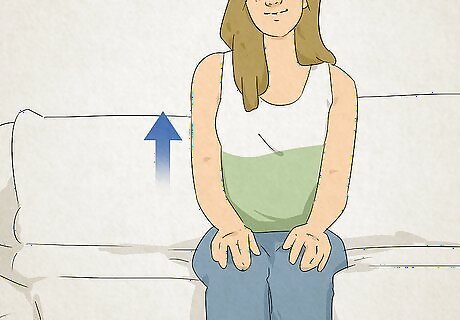
Lying down increases the pressure on your esophageal sphincter. If you’ve just eaten, try sitting or standing up for at least 2 to 3 hours before lying down. Make sure you eat dinner well before bedtime to avoid any late night pain. Remaining upright after eating can also improve your digestion.
Prop your torso up while you sleep.
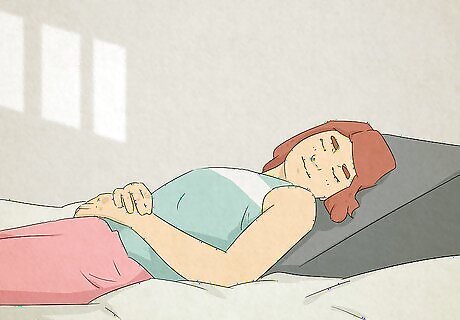
Add a wedge-shaped cushion to your bed to help with epigastric pain. Don’t just prop your head and shoulders up—that can actually make your pain worse. Get a wedge-shaped pillow from a medical supply store to start sleeping upright. Staying upright helps take pressure off of your esophageal sphincter, which can help relieve pain.
Lose weight if you need to.
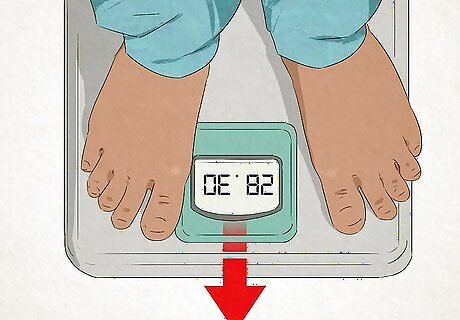
Being overweight puts you at a higher risk for epigastric pain. Talk to your doctor about whether you need to lose weight and how much. It might not be necessary, or you might need to lose less than you think. If you do decide to lose weight, ease into it with a healthy diet and daily exercise. Try to avoid fad diets, as they usually don’t work long-term.
Get prescription antacids.
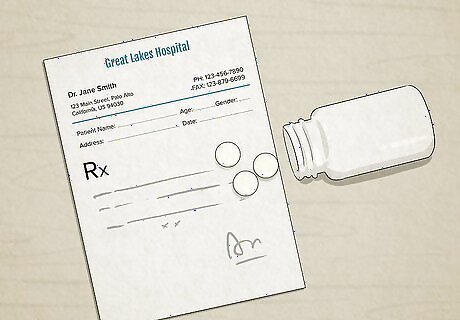
Sometimes over-the-counter antacids aren’t enough. If you’ve tried other antacids a couple other times and they aren’t working, make an appointment with your doctor. They can prescribe an antacid for you that is stronger and might relieve your pain better. Make sure you tell your doctor that you’ve tried other antacids before and that they aren’t working for you.
Get a surgery if you need to.
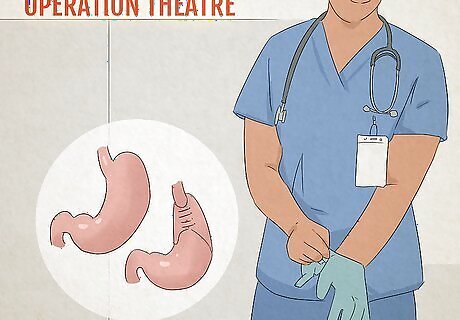
Laparoscopic antireflux surgery can relieve your symptoms. If lifestyle changes and at-home remedies haven’t worked, your doctor may recommend a surgery. A surgeon will create incisions in your abdomen to make an effective valve mechanism at the bottom of the esophagus. You can expect to stay in the hospital for about 2 days if you get this surgery. This surgery is most successful for people who experience epigastric pain while lying down.




















Comments
0 comment